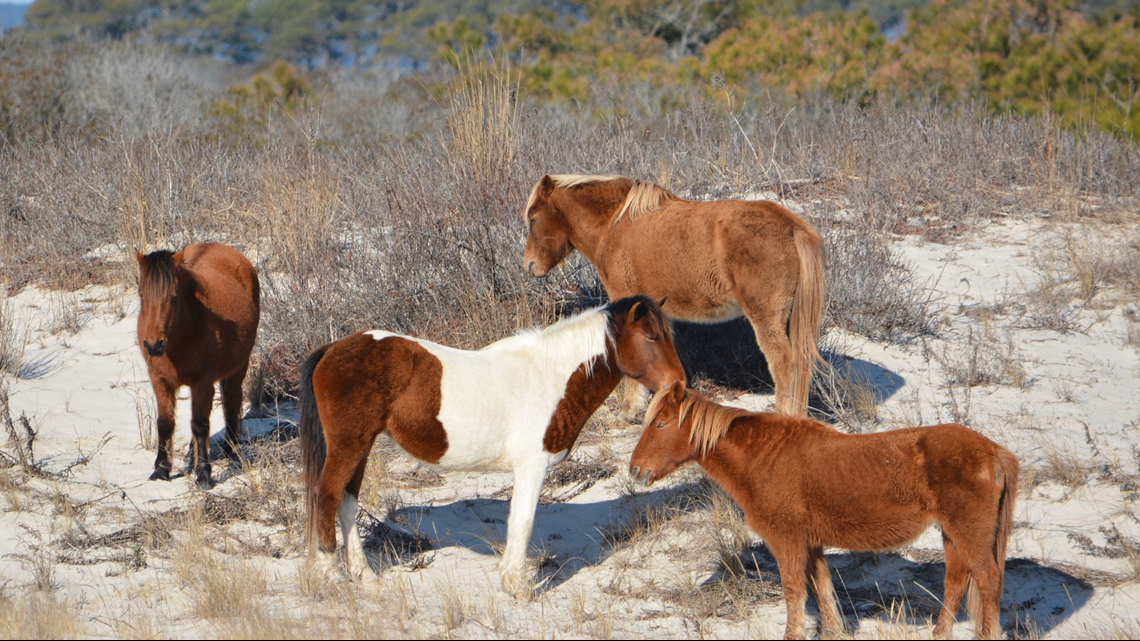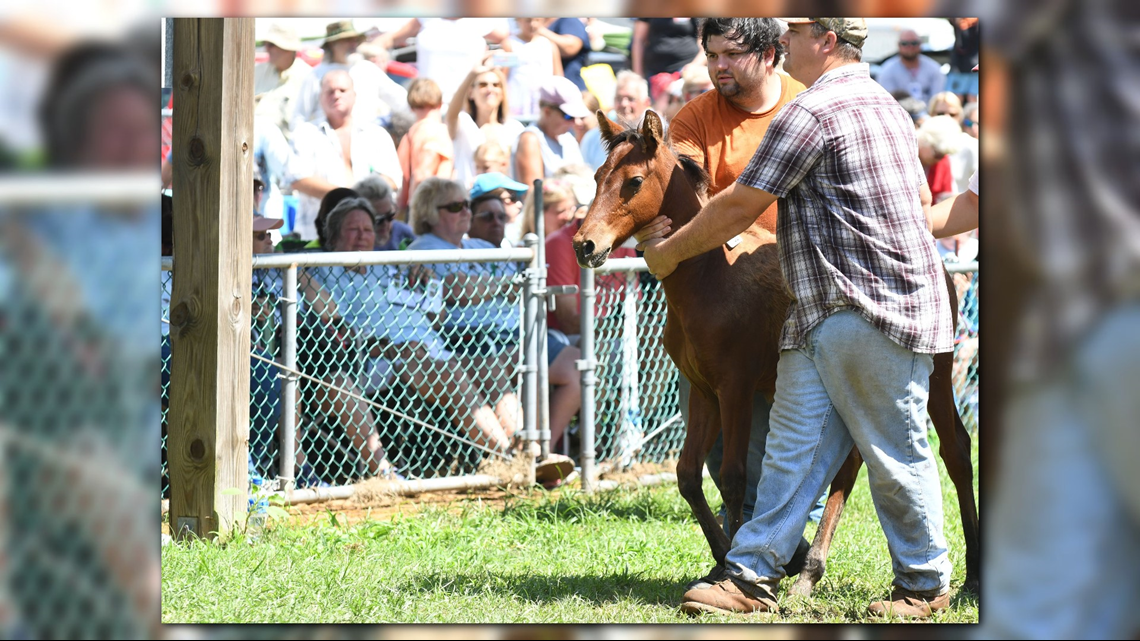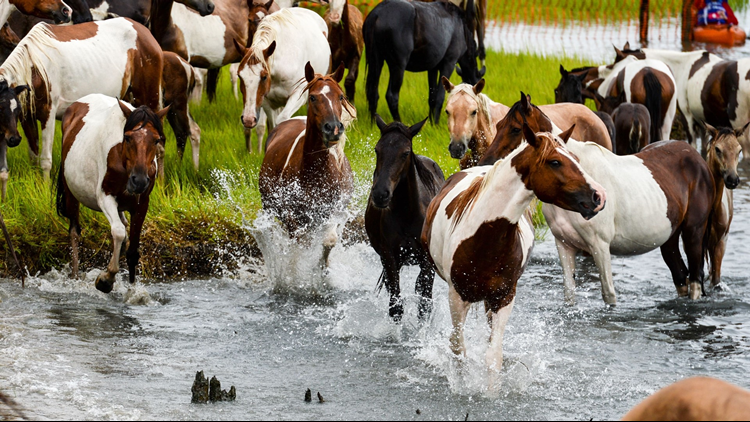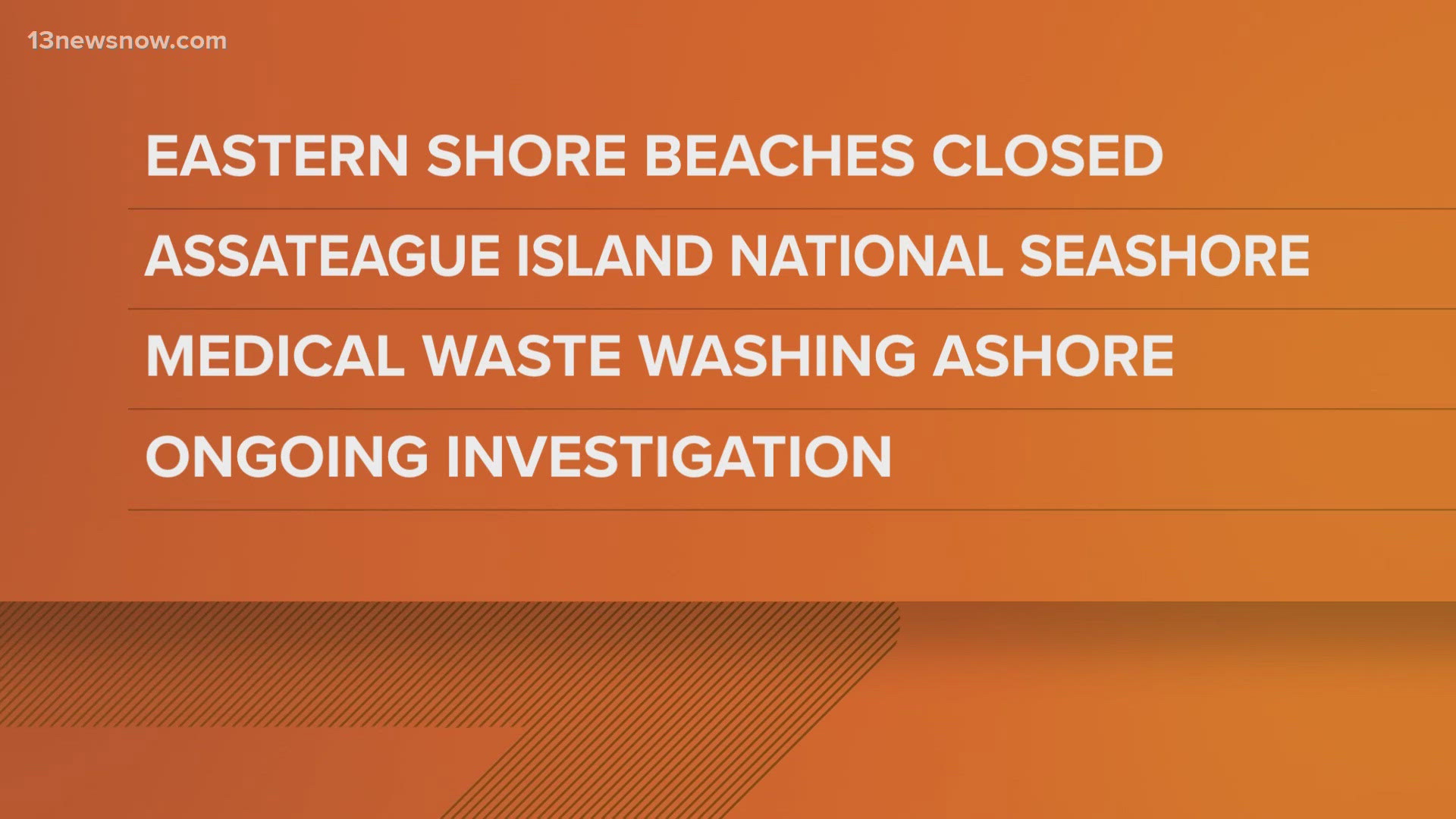CHINCOTEAGUE, Va. (Delmarva Now) — Whenever you're talking about the quality of horses' lives, the conversation will get emotional, said Keith Norris, director of wildlife policy and programs at The Wildlife Society.
Norris' primary knowledge of horses and burros comes from the western United States where the Bureau of Land Management is currently dealing with an overpopulation of its wild horses and burros on public lands, causing worry for the health of the animals and lands.
But the debate of how to manage herds of horses doesn't stop with the bureau. On the Eastern Shore, the conversation of how the Chincoteague Volunteer Fire Company manages its herd of ponies on Chincoteague Island is constantly discussed especially around its yearly Pony Penning week.
On July 26, PETA sent a letter asking the fire company to make 2018 the final year of Pony Penning and to "adopt humane fundraising and herd-management methods in the future," according to a news release. PETA had previously contacted the fire company about ending the swim and auction in May.
The letter was sent the same day a pony named Butterfly Kisses was killed when officials said the mare broke her neck after slipping and falling while being chased by another pony.
The death followed the organization's annual Chincoteague Pony Swim and auction, held July 25 and 26.
Butterfly Kisses received immediate treatment, according to a Facebook post about the incident, but later died.
On July 31, Denise Bowden, the Chincoteague Volunteer Fire Company's spokeswoman, posted a letter in response to PETA on the company's Facebook page.
"We are aware of the untruths that PETA has stated in their latest attempt to fool the general public about our Pony Penning events," Bowden wrote in the Facebook post. "In their last letter to us which by the way was sent to me through a newspaper reporter, it wasn‘t emailed to me or mailed to me (unless it’s at the post office as I write this), they claim that one of our mares, Butterfly Kisses, was “chased into” the pen. Nothing could be further from the truth. She was already in the pen and had been there for over 24hrs. We have eyewitnesses to prove otherwise. This is the same pen that she has been in numerous of times without incident."
Bowden continued, explaining how the ponies are cared for with vet visits, fed and watched over if they become ill or injured.
"If we did not do this event, these animals would end up overpopulating, eat themselves out of house and home, suffer diseases and injuries without any help at all. These are the facts about how we do what we do," she continued in the post.
Norris said Chincoteague's practice of corralling its ponies and auctioning some yearly is not unusual. In actuality, it's only slightly different from how the bureau manages its herd, just with different motivation and tactics.
"It's a similar idea," he said.
Overpopulation out West
The Bureau of Land Management's control of wild horses and burros dates back to Congress' Wild Free-Roaming Horses and Burros Act of 1971.
In the 1970s, the animals were found roaming across 53.8 million acres of public land or Herd Areas with 42.4 million acres of that under the bureau’s jurisdiction. Today, it manages wild horses in subsets of these Herd Areas, called Herd Management Areas, which consists of 31.6 million acres, according to the bureau's website. About 26.9 million acres of the HMA is managed by the bureau, according to the website.
According to the Bureau of Land Management, the public lands must maintain an Appropriate Management Level. This is "the number of wild horses and burros that can thrive in balance with other public land resources and uses."
This number is 26,690 wild horses and burros. As of March 1, the current estimate was 81,951 on-range wild horse and burros exceeding the appropriate level by over 55,000, according to its website.
According to The Wildlife Society, "all free-roaming “wild” horses and burros in North America are feral descendants of domesticated animals from Eurasia and Africa."
Horses and burros in the U.S. have experienced many generations of selective breeding and don't play a functional role in North America's ecosystems making them feral animals. They also have no natural predators, according to The Wildlife Society.
The reason the bureau's horses can be titled wild is because they are under federal protection.
"Management of population like that is essential," Norris said.
The bureau utilizes numerous tactics to manage its horse and burro population.
The primary tactic is gathering and removals, Norris said. The bureau rounds the horses using a helicopter and funnels them into a holding pen. This is the easiest as the land space is vast and the number of horses is high, but it can also use water trapping and baiting with feed.
"It's a very different situation," Norris said compared to the size of Eastern Shore's horse herds.
After being penned, Norris said the bureau moves horses to short-term holding corrals or long-term pastures.
The bureau also uses eco-sanctuaries for off-range horses and burros. As of June 2018, the total of wild horses and burros off-range population is at 44,730 animals. Keeping the animals in these off-range locations costs the bureau $50 million a year to care for the animals, according to its website.
Norris said the bureau sells and adopts its horses in off-range locations through restricted sale which includes a heavy screening process and a limit on the number of animals.
The bureau also puts some horses and burros back onto the public land after removals, Norris said. These horses are treated with Porcine Zona Pellucida, a form of birth control.
The vaccine works by stimulating the mare's immune system to produce antibodies that block sperm receptor sites on the zona pellucida or transparent membrane around a mammalian ovum.
However, maintaining the PZP is difficult as its not 100 percent effective and the horses need booster shots to keep maintaining its effects, Norris said.
He said the bureau has only a few options to solve the overpopulation.
The options include:
- More money which Norris said is unlikely.
- Different mechanism to get horses and burros out of holding areas like unrestricted sale and adoption incentives.
- Sterilization of some of the horses to act as a more permanent birth control.
Norris said this overpopulation has consequences and needs to be solved for the health of the public lands.


The other side of Assateague Island
At Assateague Island National Seashore, herd management is a bit different with its smaller size and strict use of PZP.
All of the horses on the seashore are owned by the taxpayers of the American public and managed by the National Park Service, said Kelly Taylor, assistant public information officer.
The number of horses Assateague Island National Seashore has is never exact.
"We let science dictate that number," Taylor said.
Since the horses are non-native to the island, Taylor said the amount needs to be balanced with the available resources making sure the other wildlife can also thrive.
Typically, the seashore holds 80-100 horses and currently has 81 horses.
To manage the herd's size, Assateague Island National Seashore relies strictly on PZP. This is the only medical service the horses receive as they don't see vets and aren't given feed or water as they find nourishment off the island.
During the first year of receiving the vaccine, the mare is treated with a primer and booster dose. Every consecutive year, the horse is treated with one booster dose.
Taylor said a dose of PZP costs $25.
The decision to utilize PZP for herd management was a no-brainer for the park service, Taylor said. Since it's been used for so many years and has strong evidence of effectiveness it only made sense.
"It was already a pretty proven method," she said.


'Not outside the norm'
No matter where horses are located, they need to be managed, Norris said.
According to The Wildlife Society, herds of horses and burros can lead to trampling vegetation, overgrazing and compacting soil. The areas that are occupied by feral horses tend to have fewer plant species, less plant cover, more invasive plants and less abundant small mammal and reptile populations.
Feral horses can also have aggressive behavior around watering holes and grazing sites excluding other animals, according to The Wildlife Society.
Management of population is essential, Norris said, and there is always the risk of accidents. But, that doesn't mean to leave horses be without human intervention.
While the wild horses in the Western U.S. don't swim through water and are sold through an auction, Norris said Chincoteague's practices of herd management are more similar than different just on a smaller scale and with different motivations.
"What they're doing is not outside the norm," he said.
After being involved with the Chincoteague Volunteer Fire Company for almost 29 years, Bowden ended her July 31 response letter saying the fire company is "good, fair and caring."
"There are many others that have been involved longer than I have and many younger ones coming up through the ranks. Until you have been here, seen it with your own eyes then we ask that you reserve your judgment until you do. I have done my homework and ask that PETA does theirs," she wrote.
Read Bowden's full response to PETA below:



